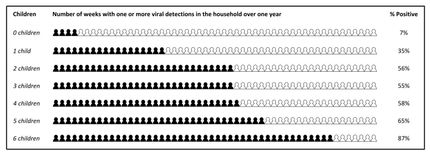Potential HIV drug keeps virus out of cells
University of Utah biochemist hopes to begin human clinical trials in two to three years
Advertisement
Following up a pioneering 2007 proof-of-concept study, a University of Utah biochemist and colleagues have developed a promising new anti-HIV drug candidate, PIE12-trimer, that prevents HIV from attacking human cells.
Michael S. Kay, M.D., Ph.D., associate professor of biochemistry in the University of Utah School of Medicine and senior author of the study published by the Journal of Virology , is raising funds to begin animal safety studies, followed by human clinical trials in two to three years. Kay believes PIE12-trimer is ideally suited for use as a vaginal microbicide (topically applied drug) to prevent HIV infection. His research group is particularly focused on preventing the spread of HIV in Africa, which has an estimated two-thirds of the world's 33 million HIV patients according to the World Health Organization.
"We believe that PIE12-trimer could provide a major new weapon in the arsenal against HIV/AIDS. Because of its ability to block the virus from infecting new cells, PIE12-trimer has the potential to work as a microbicide to prevent people from contracting HIV and as a treatment for HIV infected people. HIV can develop resistance rapidly to existing drugs, so there is a constant need to develop new drugs in hopes of staying ahead of the virus." Kay said.
PIE12-trimer was designed with a unique "resistance capacitor" that provides it with a strong defense against the emergence of drug-resistant viruses.
Peptide drugs have great therapeutic potential, but are often hampered by their rapid degradation in the body. D-peptides are mirror-image versions of natural peptides that cannot be broken down, potentially leading to higher potency and longevity in the body. Despite these potential advantages, no D-peptides have yet been developed.
PIE12-trimer consists of three D-peptides (PIE12) linked together that block a "pocket" on the surface of HIV critical for HIV's gaining entry into the cell. "Clinical trials will determine if PIE12-trimer is as effective in humans as it is in the lab," Kay said.


















































